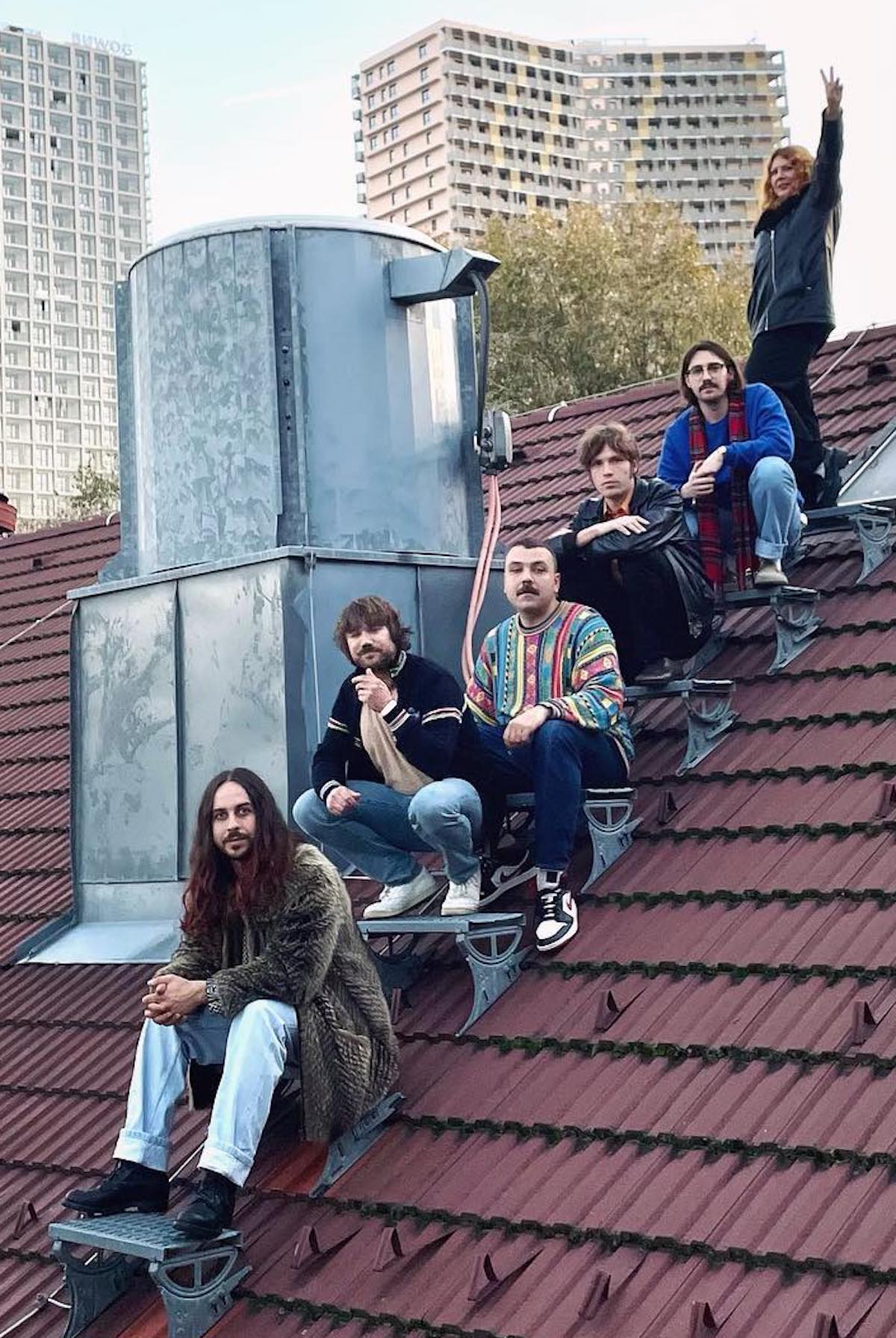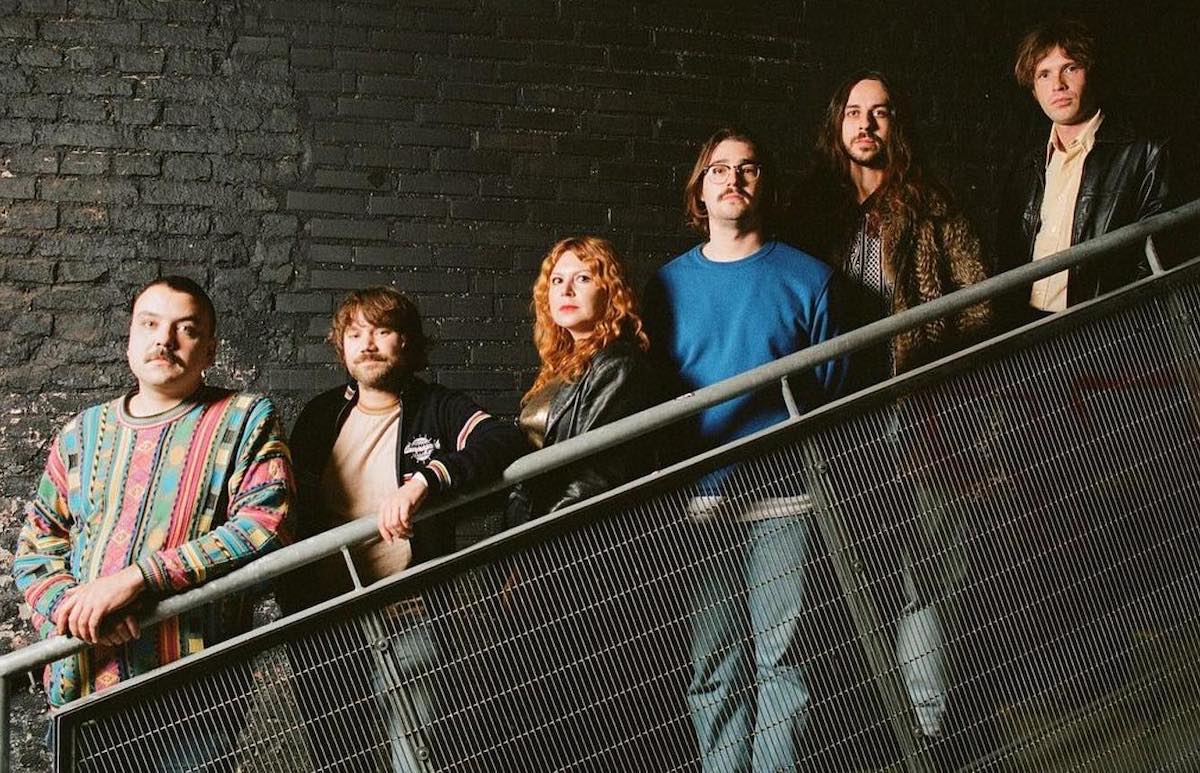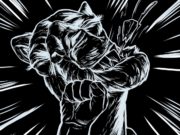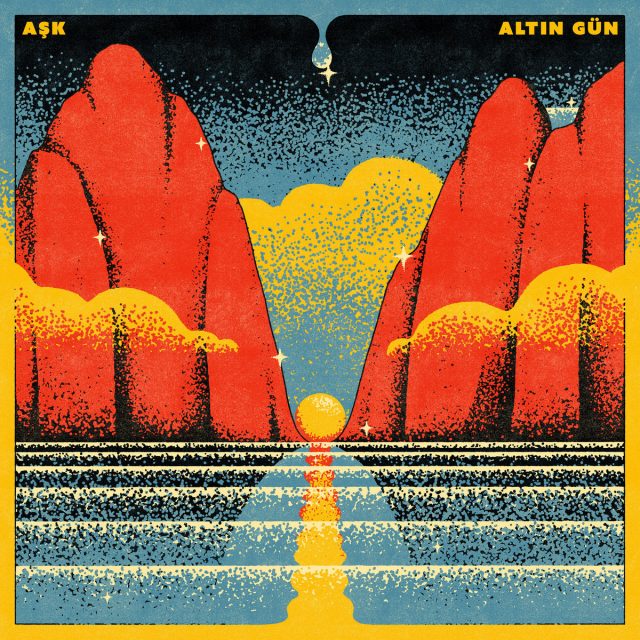THE EDITED PRESS RELEASE: “The first thing that grabs you about Aşk is the energy. On their fifth album in as many years, Amsterdam-based sextet Altın Gün turn away from the electronic, synth-drenched sound of their 2021 releases Âlem and Yol. While those two LPs, created at home during the pandemic, paid homage to the electronic pop of the ’80s and early ’90s, Aşk, marks an exuberant return to the ’70s-style Anatolian folk-rock that characterised their first two albums On (2018) and Gece (2019).
But there’s development here too. Aşk is the closest the band have come so far to capturing the infectious energy of their live performances. “It’s definitely connecting more with a live sound — almost like a live album,” says bassist Jasper Verhulst. “We, as a band, just going into a rehearsal space together and creating music together instead of demoing at home.” Vocalist Merve Daşdemir agrees: “We didn’t record it like we did the last album. We basically produced that one at home because of the pandemic. Now we’ve gone back to recording live on tape.” Adds Verhulst: “We took a very traditional approach to recording a rock album, like in the ’70s,” Verhulst adds. That doesn’t just mean getting six musicians together in a room with a few microphones, he says. “It’s also about the gear that we are using, the tape and everything.”

It’s this attention to detail in using vintage equipment and recording techniques that gives the album such a warm and welcoming sound. But, above all, this is the sound of friends and collaborators joyfully reconvening to make music together again in real time and space. There’s also a deliberate return to the source in the material they’ve chosen for this album. All 10 tracks are new readings of traditional Turkish folk tunes, revealing how these ancient songs remain eternally resonant and ripe for reinterpretation. “These songs have been covered so many times, always,” says Daşdemir. “But not really in psychedelic pop versions,” Verhulst adds.
The album begins with Badi Sabah Olmadan, which also featured on Âlem as a burbling electronic excursion. But this is a different trip entirely. The opening snare roll cracks tight like a starting pistol, signalling a headlong flight into driving space rock, with Erdinç Ecevit supplying dolorous vocals and gnarled electric saz, and Thijs Elzinga’s razored slide guitar suggesting an Anatolian cousin to Pink Floyd’s psychedelic barn-stormer One of These Days.
The saz and slide guitar are also all over Su Suziyor, a reggae-funk groove with Verhulst and drummer Daniel Smienk playing in the pocket like Sly and Robbie, providing a tight backdrop for Daşdemir’s pleading, teasing vocals. On Dere Geliyor, Ecevit adds ethereal keyboards, rolling into a deeply dosed synth solo with Chris Bruinings’ clattering hand drums and stumbling time signatures summoning an epic prog-folk feel.

Çit Çit Cedene is the only track on the album that has previously had a ’70s psych-folk makeover, by none other than Anadolu-psych legend Barış Manço. Here, Altın Gün add extra punch to his sultry funk vibe, with Ecevit unfurling another mind-blowing synth solo. The spirit of Barış Manço can also be detected in Kalik Gidelim, which bears distinct traces of Manço’s seductive classic Lambaya Puf De.
How many more worlds do Altın Gün visit in this joyful expedition? Rakiya Su Katamam is glowering space rock that sounds like Gong on a stopover in the Bosphorus. Canim Oy is a psychedelic freak-beat stomper from a world where Istanbul’s Kadiköy district was the Carnaby Street of the east. Güzelliğin On Para Etmez is a dreamy acid-folk anthem. And the finale Doktor Civanim is an irresistible slice of sci-fi disco camp with lava-lamp synth squiggles that wouldn’t sound out of place next to Barış Manço’s Ben Bilirim.
Fresh yet timeless. Rooted in antiquity yet yearning for heavenly futures. Aşk wants to take you places. All you have to do is strap yourself in.”









































